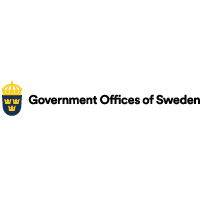
This week, countries around the world will meet under the auspices of the UN Convention on Biological Diversity to begin drafting a global framework on how to sustainably protect and make use of biodiversity. Minister for Environment and Climate Per Bolund will take part in the meeting digitally and will emphasise that Sweden wants protection for 30 per cent of the world’s land and oceans.
According to a report by the Intergovernmental Science-Policy Platform on Biodiversity and Ecosystem Services (IPBES), human activities lead to ecosystem imbalance, species loss and a rapid and large-scale loss of genetic variation. Moreover, current human overexploitation of nature’s resources results in the deterioration and loss of ecosystem services; services that provide clean water, pollination and fertile soils.
Sweden supports introducing goals to protect 30 per cent of the world’s land and 30 per cent of its oceans. This is in line with what international researchers have highlighted as a minimum to ensure biodiversity.
“Humans are behind the global loss of biodiversity. Consequently, it is our duty to help address this critical issue. At the meeting of the Parties to the UN Convention on Biological Diversity, I will work for an ambitious framework with global goals that meet the challenges we see with continued loss of biodiversity,” says Mr Bolund.
Protecting 30 per cent of the world’s land and oceans will not be enough to ensure ecosystem services upon which people are completely dependent. This is why goals and measures are needed that reduce the pressure on biodiversity in the other 70 per cent. Sweden wants the new global framework to include goals for reducing the global ecological footprint. This involves reduced pressure from human consumption and production on biodiversity and its ecosystem services.
Nature-based solutions are one way of both protecting biodiversity and contributing to emissions reductions or adaptation to a warmer climate. Sweden is pushing for the new global framework to contain such solutions. Climate change contributes to reduced biodiversity, and reduced biodiversity can drive climate change. Species and ecosystems are unable to adapt when the pace of climate change is steadily increasing. For example, degraded ecosystems absorb less carbon dioxide.